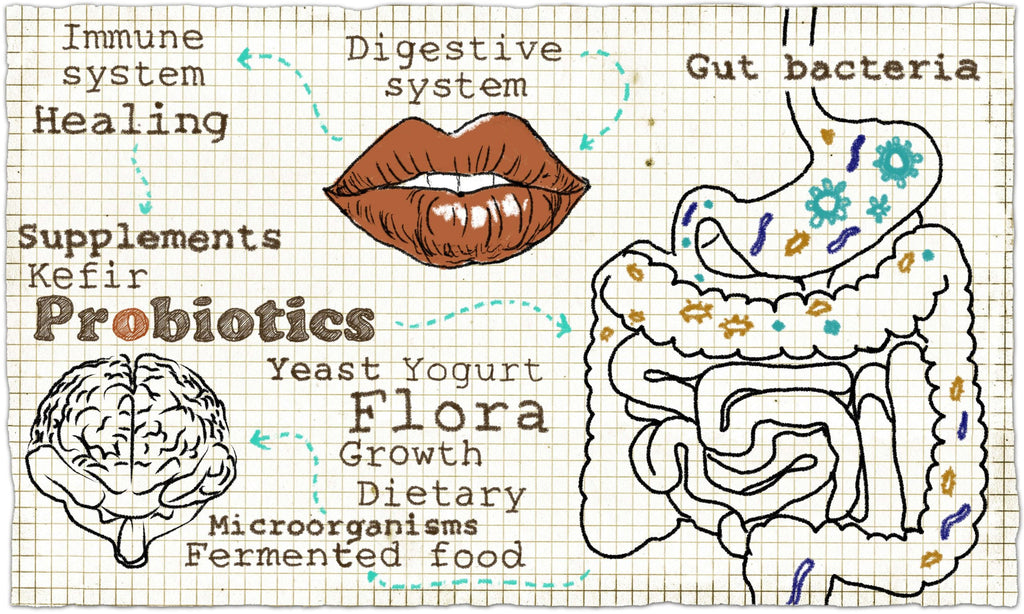The Importance of Gut Health
Posted by TEAM PURE NOOTROPICS

Gut health has been a recent growing trend in the health and nutrition community, and with good reason. As the age-old Hippocratic saying states, "all disease begins in the gut," and now after years of research we know is partially true.
The gut is like a second brain. Its’ health effects your overall health, including your mood, cognition, energy levels, libido, and creative output. To better understand how to improve overall gut health, it is important to know how it functions, and what makes an unhealthy gut. There are approximately 500 species of bacteria that make up “the gut flora.”
The breakdown of food begins in the mouth, by the process of chewing with the help from enzymes in your saliva. By the time you finish ingesting your food, muscular contractions move it into your esophagus and then into your stomach.
The bulk of digestion happens in the stomach. Chemicals naturally produced by cells aide in the proper absorption of vitamins and minerals. Most foods and liquids you consume are absorbed in the small intestine while others are absorbed through the lining of your stomach. Then all the unneeded, unnecessary substances, and bacteria that can't be digested are excreted. This bacteria is essential for proper digestion and intestinal health.
If there's imbalance between the number of good and bad bacteria, the result is something called gut dysbiosis, which can lead to many health issues both mental and physical. Dysbiosis typically is the result of the overgrowth of bad bacteria and parasites. This imbalance allows harmful bacteria to cause significant damage to the gastrointestinal tract's mucosal layer. As a result, the mucosal layer, which was normally smooth and intact, becomes permeable. This is bad because it often causes gut inflammation, sensitivities to a variety of foods, and several other symptoms that effect the entire body.
Inflammation and irritations often happen when the food being digested is overly-processed or contains something that the person eating has sensitivity to. These negative reactions trigger mood functions and affect a person's memory and thinking skills.
Most of us might think that neurotransmitters may come mostly from the brain. In actuality, about 90% of serotonin, one of the body's most popular neurotransmitter is produced in the digestive tract. People deficient in serotonin are often linked to diseases such as leaky gut, irritable bowel syndrome, osteoporosis, and cardiovascular diseases.
The same goes with those who mainly eat food with simple carbohydrates and gluten. Sadly, with the surging number of people eating processed, fatty, and sugary foods, more people are being diagnosed every day with a damaged or less functional gastrointestinal tract.

